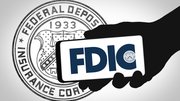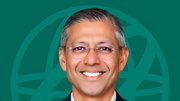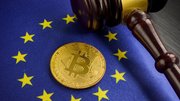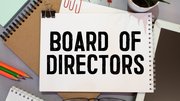News
Online banking starting to click with consumers
February 8, 2004
NEW JERSEY - More and more Americans are banking with a keyboard, mouse and monitor.
In 1995, when Web-based banking was launched, customers in 600,000 American households actively banked or paid bills online. That number grew to 33 million households by last year, according to the newsletter Online Banking Report.
The number of people banking online more than doubled from March 2000 to October 2002, increasing more than any other Internet activity measured by the Pew Internet & American Life Project in that period. Three out of 10 Internet users banked online in October 2002, according to the report, released in December.
"Online banking has gone mainstream," said Chris Musto, vice president of research at Gomez Inc., an Internet consulting company in Waltham, Mass, in a Newsday report.
For years, concerns about online privacy, financial security and ease of use have hindered the growth of online banking. But more customers are willing to take the plunge after first experimenting with online purchases, the booking of flights and other online transactions.
A popular online application is bill payment. By 2010, the Online Banking Report says, 22 million American households will be paying bills online, up from 13 million this year (as compared to the 33 million current total for the two categories of paying bills or doing other banking online).
The No. 1 reason people are drawn to the service, according to the Newsday report, is not having to pay for stamps. A consumer paying 12 bills a month can save $53 a year on stamps. And customers could save more by setting up automated payments for bills to avoid expensive late fees.
On the other hand, online bill-paying generally debits an account immediately, so customers lose the advantage of the float -- the time between when their check arrives and the time the money leaves their account.
Online bill payment costs an average of $5.30 a month -- for those who pay. But nearly eight out of 10 customers get the service for free, as many banks have eliminated the fee, said Raj Dhinsa, a senior analyst at Jupiter Research, an Internet research company in Manhattan.
Six of the country's top 10 banks now offer free online bill payment.
Others prefer paying bills directly at the Web site of the company billing them. Robert Smith, a 47-year-old Brentwood, N.J., resident, doesn't conduct transactions at his bank's Web site. But if his American Express bill is approaching the due date, he'll head to that company's Web site, which allows customers to register a bank account, facilitating electronic payments.
"I'll jump online and pay it online so I don't have to pay a late fee," said Smith.
As with the adoption of technology in general, there's often an age gap. Many older consumers wouldn't think of paying bills, or doing anything else, online.
Miriam Seitelman of Hicksville, N.J., now retired, oversaw payroll and bills for a home health agency. But the 79-year-old won't go near online banking.
"I'm afraid that I'll hit a wrong key," she said in the Newsday report. "I'm not afraid it will go elsewhere. I'm just afraid it won't go through."
Seniors also tend to worry more than younger people about security online, experts said.
So while 44 percent of Gen-Xers bank online, just 29 percent of people 58 and older do so, according to Forrester Research, a technology research company in Cambridge, Mass. But older people are getting more comfortable with the Internet. The Pew report noted, "Since 2000, more wired seniors started banking online than any other demographic group."
Banks are hoping customers of all ages will overcome any concerns with online banking, since e-bankers are among their best customers.
Compared to traditional customers, people who do online banking typically have loan balances that are up to 40 percent higher, buy up to 10 percent more bank products and maintain checking balances up to 45 percent higher, said Avivah Litan, vice president financial services at Gartner Inc., a technology research company in Stamford, Conn.
But as online banking grows in popularity, those statistics are changing, just as the profile of people using the Internet in general is evolving.
Households earning less than $75,000 will adopt online banking at a greater pace than other income groups in coming years, according to Jupiter Research.
"People who used to use it were the richest, most educated customers," said Musto, of Gomez. "Now they look more like everyone else."
Online banking customers also save banks money, because they make fewer calls to customer service. Banks are encouraging customers to receive statements online, offering carrots -- and sometimes sticks -- to get customers to turn off the paper statements sent by U.S. mail. With online service, banks also can reduce costs associated with shipping and processing paper checks.
 ChatGPT
ChatGPT Grok
Grok Perplexity
Perplexity Claude
Claude












